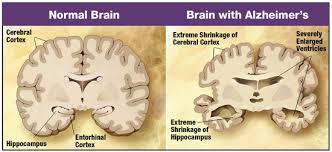 Lauren Sergio
Lauren Sergio By Paddy Kamen, Publisher, BetterBrainBetterLife.com
A brain that is in trouble can’t allow you to think and move at the same time. So says Lauren Sergio, Ph.D., professor in the School of Kinesiology & Health Science at Toronto’s York University. Sergio and her colleague, Ph.D. candidate Kara Hawkins, used this fact to develop a simple test that predicts with over 80 percent accuracy who is at risk of developing Alzheimer’s disease. Her test should frighten everyone who has a parent with this diagnosis.

Some study participants who showed no apparent signs of cognitive difficulty or other outward signs of the disease had trouble doing the test. And one of the most interesting aspects of the research came as a surprise to Sergio and Hawkins. They had asked adult children of patients with dementia, who were coming into their clinic with their parents on a regular basis, to volunteer to be part of a control group known as ‘family history but no symptoms’. But when they began looking at the data from the adult children they thought something was wrong.
Sergio explained: “Kara called me over to the computer monitor to show me their movement paths and pointed out that they were much much worse than the other control participants, who didn't have parents with dementia. We decided right then and there to move them into a new group, 'family history positive', and analyse them separately from then on.”
They found that the ‘family history positive’ group could do each of the thinking and moving parts of the test well, but had trouble combining them.
The news release explaining the research says that those with MCI and family history failed the test at a rate of 81.8 percent. The difference in results between the ‘family history positive’ participants and the MCI participants is not clear.
While the test cannot yet be said to be predictive of Alzheimer’s disease, the results sound alarming for anyone with a parent who has the disease.
 Social Exercise
Social Exercise Another paper by Sergio and Hawkins will be published late this year. “We looked at how the various parts of the brain were communicating in those who participated in the current research. We found weaker brain connections in those who did poorly.”
It appears that adult children of Alzheimer’s patients, like me, will want to get a jump on Sergio’s suggestions, or come up with other options for combining movement and cognition in order to enhance brain function. I now augment my power walking, which I do alone, with mental math or by listing people and things for which I am thankful. Am I staving off Alzheimer's by being more mentally engaged while walking or do I really need a buddy to walk and talk with? Time, and more research just might reveal the answer.
(FYI, original content has integrity and skill behind it. Spinning other people's work is a form of theft. Karmic laws will apply.)
